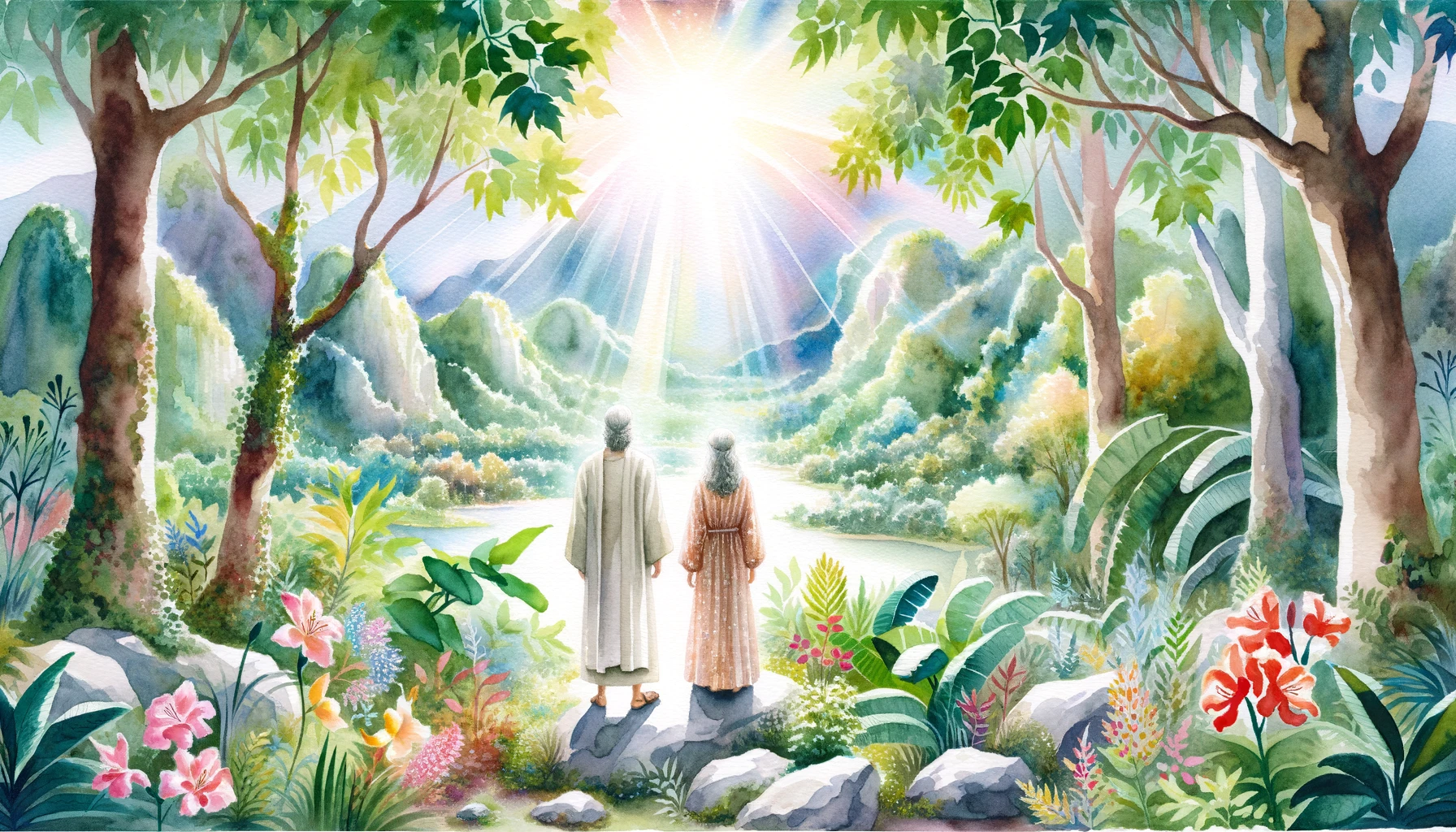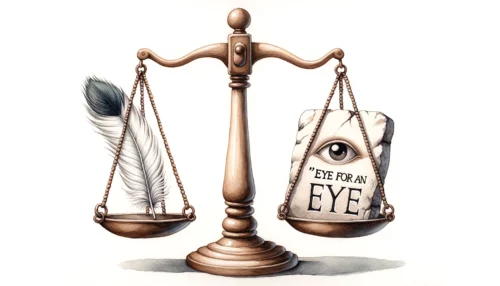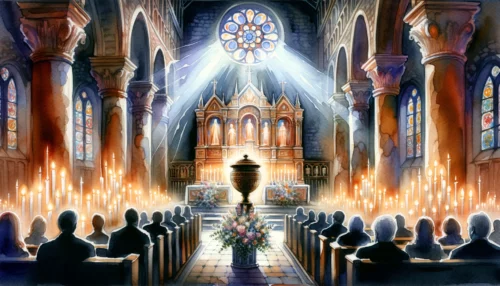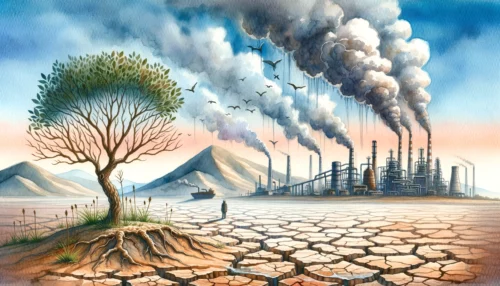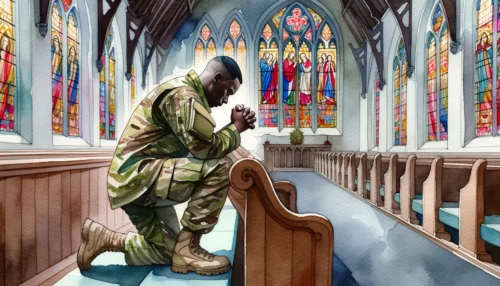The Bible provides a rich narrative of God’s creative work in the beginning, setting the stage for human history and our relationship with the Creator. This article will explore the biblical perspective on God’s creation of the world and the human race, highlighting key passages and theological insights. By understanding the biblical narrative, we can better appreciate the divine origin of the universe and our place within it. We’ll also consider the significance of this narrative for our faith, particularly in relation to our purpose and stewardship responsibilities.
The Genesis Account: God’s Creation of the World
The Genesis account begins with the famous phrase, “In the beginning, God created the heavens and the earth” (Genesis 1:1). This powerful statement sets the stage for the rest of the narrative, which unfolds over six days. On each day, God creates something new, demonstrating His power and wisdom.
On the first day, God creates light, separating it from darkness and naming them day and night (Genesis 1:3-5). The second day sees the formation of the sky, which separates the waters above from those below (Genesis 1:6-8). On the third day, God gathers the waters below to form seas, allowing dry land to emerge, and then He creates vegetation, including plants and trees that bear seeds and fruit (Genesis 1:9-13).
The fourth day brings the creation of the sun, moon, and stars, which serve to mark the passage of time and to illuminate the earth (Genesis 1:14-19). On the fifth day, God creates sea creatures and birds, blessing them and commanding them to multiply (Genesis 1:20-23). Finally, on the sixth day, God creates land animals, and later on the same day, He creates human beings (Genesis 1:24-31). On the seventh day, God rests, declaring His creation “very good” (Genesis 2:1-3).
It’s important to note that throughout the Genesis account, God’s creative power is emphasized by the repeated phrase, “And God said, ‘Let there be…'” (Genesis 1:3, 6, 9, 14, 20, 24). This highlights the divine nature of creation, as it is accomplished through God’s word alone.
The Genesis account establishes the foundation of the Christian understanding of the world’s origin. God creates everything with purpose and order, and the natural world is a testimony to His wisdom and power. From the vastness of the universe to the smallest detail, all of creation points to God’s greatness and sovereignty.
God is the Creator of all things, bringing the world into existence with divine power and wisdom. The order and beauty of creation testify to His greatness and provide a foundation for our understanding of the universe and our place within it.
The Creation of Humanity: Made in God’s Image
The creation of humanity holds a special place in the biblical narrative, as humans are the only part of creation that is said to be made in the image of God (Genesis 1:26-27). This distinction sets human beings apart from the rest of creation, highlighting their unique relationship with the Creator. It also implies that humanity has a special role and purpose in the world, which will be discussed in the next section.
After creating the world, God turns His attention to the creation of the first human beings. He forms the first man, Adam, from the dust of the ground and breathes life into him, making him a living being (Genesis 2:7). Later, God recognizes that it is not good for man to be alone and decides to create a suitable helper for him (Genesis 2:18). God then causes Adam to fall into a deep sleep, removes one of his ribs, and forms the first woman, Eve, from the rib (Genesis 2:21-22).
In the act of creating humanity, God blesses them and gives them dominion over the rest of creation, entrusting them with the responsibility to be fruitful, multiply, and fill the earth (Genesis 1:28). This highlights the unique role that human beings have within creation, as stewards and caretakers of the world that God has made.
The creation of humanity in God’s image also suggests that human beings possess certain qualities that reflect the divine nature. These may include attributes such as rationality, creativity, the ability to relate to others, and a moral conscience. Furthermore, being made in the image of God means that humans have inherent dignity and worth, which forms the basis for Christian ethics and the sanctity of human life.
Human beings hold a unique place in the biblical narrative as the only part of creation made in God’s image. This special status points to the divine qualities and inherent dignity that humans possess, as well as the unique role and responsibility they have within creation. Understanding the significance of humanity’s creation in God’s image provides a foundation for our understanding of human purpose and ethical responsibility.
Implications of Divine Creation: Purpose and Stewardship
The biblical account of God’s creation of the world and the human race has profound implications for our understanding of purpose and stewardship. As God’s image-bearers, human beings have a unique role and responsibility within creation, which includes the call to care for the world and its resources.
One of the primary purposes for humanity, as indicated in the creation account, is to exercise dominion over the earth (Genesis 1:28). However, this dominion is not meant to be exploitative or destructive. Instead, it is a call to stewardship, to care for and cultivate the earth in a way that honors God and ensures the well-being of all creation. This stewardship responsibility extends to all aspects of life, including our treatment of animals, the environment, and our use of natural resources.
Another essential aspect of our purpose as God’s image-bearers is to reflect His nature and character to the rest of creation. This involves living in a way that demonstrates love, justice, mercy, and other attributes of God, as well as cultivating relationships with other human beings that are characterized by these qualities. Additionally, as image-bearers, we are called to be in relationship with our Creator, recognizing our dependence on Him and seeking to know and honor Him in all that we do.
The biblical account of creation also has implications for our understanding of human dignity and the sanctity of life. Since all people are created in the image of God, each person possesses inherent worth and value, regardless of their race, gender, social status, or any other factor. This understanding forms the basis for Christian ethics, which call for the fair and compassionate treatment of all people and the protection of the most vulnerable members of society.
The divine origin of the world and the human race offers profound insights into our purpose and responsibilities within creation. As God’s image-bearers, we have a unique role to play in caring for the earth and its resources, reflecting God’s nature and character, and living in relationship with our Creator. Recognizing the inherent dignity of all people as created in God’s image, we are also called to pursue justice, mercy, and compassion in our relationships with one another and in our treatment of the most vulnerable among us.
Reflecting on Our Divine Origin
As we have journeyed through the biblical account of God’s creation of the world and the human race, we are left with a deeper appreciation for our divine origin and the unique role we have within creation. Our understanding of purpose and stewardship is grounded in the knowledge that we are created in God’s image and called to reflect His nature and character.
Consider the following questions for personal reflection:
- How can I better fulfill my role as a steward of God’s creation in my daily life?
- In what ways can I more fully reflect God’s nature and character in my relationships with others?
- How can I deepen my relationship with God and grow in my understanding of His purposes for my life?
Let us be inspired by the biblical account of creation to live lives that honor our Creator and recognize the inherent dignity and worth of every person. In doing so, we will not only find greater purpose and meaning in our own lives but also contribute to the flourishing of the world around us.




